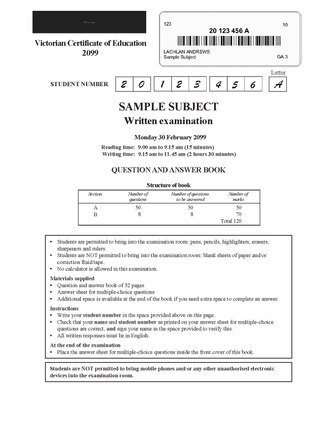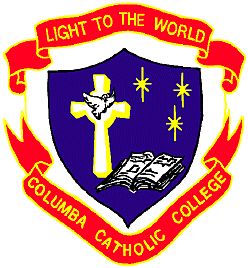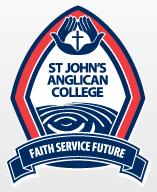The Higher School Certificate (HSC) is the credential awarded to secondary school students who successfully complete senior high school level studies in New South Wales and some ACT schools in Australia, as well as some international schools in Singapore, Malaysia, Indonesia, China, and Papua New Guinea. It was first introduced in 1967, and is currently developed and managed by the NSW Education Standards Authority (NESA).

The Victorian Certificate of Education (VCE) is the credential available to secondary school students who successfully complete year 11 and 12 in the Australian state of Victoria as well as in some international schools in China, Malaysia, Philippines, Timor-Leste, and Vietnam.
Killara High School is a coeducational public secondary school, located on Koola Avenue in East Killara, Sydney. Established in 1968, Killara High School is one of the highest performing comprehensive non-selective public schools in the state. The success of the school in the Higher School Certificate (HSC) and its reputation as a school with an extensive program of curriculum enrichment make the school highly desirable. Activities such as music, art, dance, drama, debating, sport and strong participation in the Duke of Edinburgh's Award Scheme are included in the co-curricular program. Enrolment rose 21% from 2002 to a population of 1400 students in 2009. It now has 1580 students (2016). Currently, accepted catchment areas include Roseville, Lindfield, East Lindfield, West Killara, Killara, East Killara, West Gordon and East Gordon.

The Victorian Tertiary Admissions Centre (VTAC) is an independent shared admissions service facilitating access to tertiary education and further study opportunities and pathways for learners in Victoria and beyond. Formed in 1967 and incorporated as a company by limited guarantee in 2023, VTAC is a not-for-profit organisation and a member of the Australasian Conference of Tertiary Admission Centres (ACTAC).
The Overall Position (OP) was a tertiary entrance rank used in Queensland, Australia to guide selection into universities. Like similar systems used throughout the rest of Australia, the OP shows how well a student has performed in their senior secondary studies compared with all other OP-eligible students in Queensland. The system was introduced in 1992 and ended with the 2019 cohort.

Mansfield State High School is an independent public, co-educational secondary school of approximately 3300 students located in Mansfield, a suburb in Brisbane, Australia. The school was established and opened in 1974. In recent years, the school has become known for its academic performance, as well as its specific programs including the French immersion, Music, Technology, Learning Support and Life Skills programs.
The Western Australian Certificate of Education (WACE) is the credential awarded to students who have completed senior secondary education in the state of Western Australia. It is the Western Australian graduation certificate of the Australian Senior Secondary Certificate of Education. Students are required to meet various breadth and depth requirements, achievement standards and literacy and numeracy standards across their final years of schooling. As of the 2020 WACE, there are 106 courses available for students to study. Many WACE students are awarded an Australian Tertiary Admission Rank (ATAR), summarising their results across all areas of study into one ranking for the purposes of university admission. Students may choose from ATAR courses, which count directly towards their ATAR, Vocational Education and Training courses, which are more practical courses and can lead to further vocational opportunities, and, from 2021, General courses, which provide pathways to university, employment, or further vocational education and training. From 2010, the WACE replaced the Tertiary Entrance Exam (TEE), as the standard academic examination for school leavers in Western Australia.
Crestwood High School is a public high school in Crestwood, Baulkham Hills, in the north-west of Sydney, Australia. Crestwood High School offers an education culminating in the award of the HSC, administered in accordance with New South Wales Education Standards Authority. Their overall state score is 90. The school offers comprehensive classes for students in grades seven through to twelve.

Concordia College (CC) is an ELC–12 independent, co-educational, Lutheran school with campuses located in the Highgate and Blackwood areas of Adelaide, South Australia. Established in 1890, the college is a school of the Lutheran Church of Australia and has been an International Baccalaureate (IB) World School since January 2001, offering the IB Primary Years and Middle Years Programmes.
Narangba Valley State High School (NVSHS) is a co-educational, state secondary school in Narangba, Queensland. It is one of the newest schools in the state, having only opened on 1 January 2000.
Korowa Anglican Girls' School is a private, Anglican, day school for girls, located in Glen Iris, a suburb of Melbourne, Victoria, Australia.

John Septimus Roe Anglican Community School is an independent Anglican co-educational primary and secondary day school, located in Perth, Western Australia.
Mount Carmel Catholic College is a systemic Catholic co-educational secondary school of the Marist tradition located in Varroville, a suburb 46 kilometres south-west of Sydney. It is situated within the city of Campbelltown, New South Wales, Australia. The current principal is Stephen Lo Cascio.

Columba Catholic College is an independent Roman Catholic co-educational primary and secondary day and boarding school, located in Charters Towers, Queensland, Australia. It is a school of the Diocese of Townsville.
St Peter Claver College is a Roman Catholic co-educational secondary school located in the suburb of Riverview in Ipswich, Queensland, Australia. It was founded in 1976, on the traditional lands of the Ugarapul clan of the Yuggera Nation, and was named in honour of St Peter Claver, the Spanish Jesuit priest and patron saint of the slaves.

Loyola College is an independent Catholic secondary school, located in Watsonia, a suburb of Melbourne, in Victoria, Australia. The college was founded by the Society of Jesus in 1980 with an initial enrolment of 134 students. The Jesuits conduct the school in the Ignatian tradition. Located on 11 hectares, as of 2020, Loyola College had a student population of approximately 1,360 students from Year 7 to Year 12.

The Australian Tertiary Admission Rank (ATAR) for all domestic students, or the ATAR-based Combined Rank (CR) for all International Baccalaureate (IB) students, are the primary criteria for determining the Selection Rank (SR) for admission into undergraduate courses in Australian public universities. Domestic Students are students who are Australian or New Zealand citizens, or Australian permanent residents, or the holder of long-term refugee visa. ATAR & CR are not applicable for international students as they must apply directly to each university separately and their SR is calculated by the university. The ATAR is calculated by each state or territory's own state-level Tertiary Admission Center (TAC) for all domestic students studying within their geographical limits. Interstate Domestic Students must apply to the TAC of their respective state. The Selection Rank is calculated by each University separately based on the ATAR or CR as well as additional points for each university's unique criteria such as a student's educational disadvantage or subject performance. ATAR is not a mark, but rather a percentile ranking between 0.00 and 99.95 which shows the student’s relative position compared to all other students in the range of 16 to 20 years old who would have completed their respective year 12 exams in that state in a year.

V.S. Niketan Secondary School is located in 32-Tinkune, Kathmandu, Nepal, and schools above 4000 current students. V.S. Education Foundation is the outcome of the expansion of an education system aiming to coordinate all the educational activities of the institution so that the entity established at V.S. Niketan is uniformly maintained in all levels of teaching and learning under the same roof. The institution function form Pre-Primary to Bachelor's Levels of education. It has been awarded the "Best School of Nepal" for two times, recently.

St John's Anglican College is an independent Anglican co-educational primary and secondary day school located in the southwestern Brisbane suburb of Forest Lake, Queensland, Australia. The College was established in 1994 and caters for students from Prep to Year 12.
Robina State High School is a coeducational independent public secondary school based in Robina, on the Gold Coast in Queensland, Australia. The school has a total enrolment of more than 1500 students, with an official count of 1530 students in 2024.











